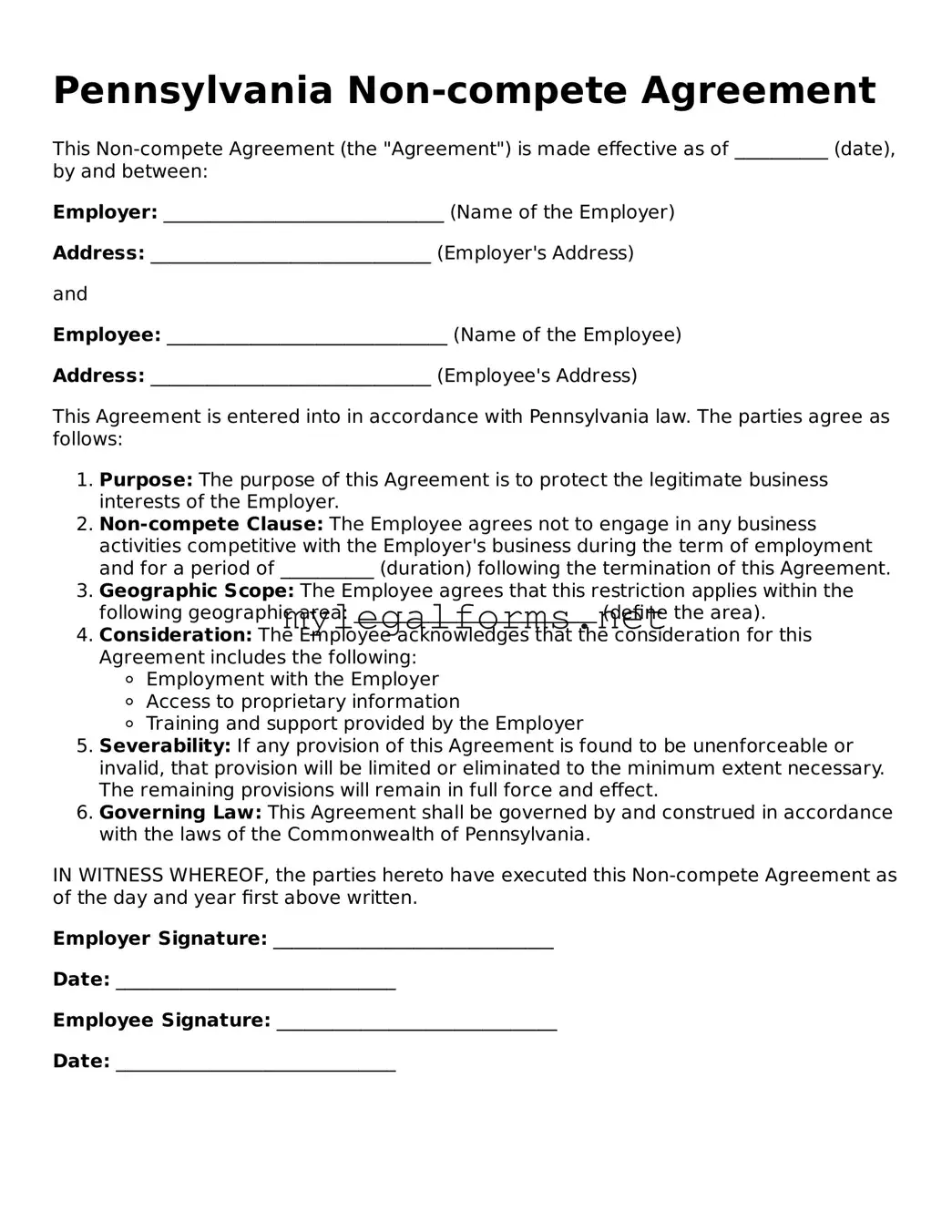Non-compete Agreement Document for Pennsylvania State
A Pennsylvania Non-compete Agreement form is a legal document designed to protect a business's interests by restricting an employee from working with competitors for a specified period after leaving the company. These agreements aim to safeguard trade secrets, client relationships, and proprietary information. Understanding how to properly utilize this form can help both employers and employees navigate their rights and responsibilities effectively.
Launch Non-compete Agreement Editor

Non-compete Agreement Document for Pennsylvania State
Launch Non-compete Agreement Editor

Launch Non-compete Agreement Editor
or
⇓ PDF Form
Complete the form at your pace — fast
Finish your Non-compete Agreement online and download the final version.